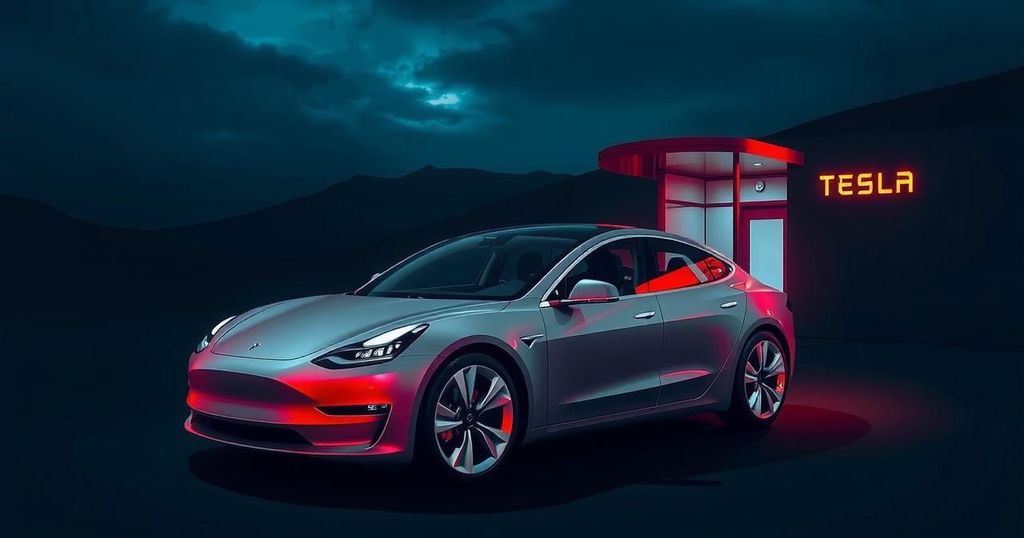Musk Accuses Bezos of Advising Tesla Stock Sales Amid Election Claims
Elon Musk asserted that Jeff Bezos advised people to sell their Tesla shares over fears about Donald Trump’s election loss. Bezos denied this claim, leading Musk to humorously concede. The implication of political support on Tesla’s stock became evident as Trump’s backing resulted in a 40% rise post-election. Unlike Musk, Bezos refrained from endorsements to maintain independence, revealing contrasting strategies in their rivalry.
Elon Musk and Jeff Bezos have reignited their ongoing rivalry after Musk claimed on X that Bezos instructed acquaintances to sell their Tesla shares based on his prediction that Donald Trump would lose the presidential election. Musk remarked, “Just learned tonight at Mar-a-Lago that Jeff Bezos was telling everyone that @realDonaldTrump would lose for sure, so they should sell all their Tesla and SpaceX stock.” Bezos swiftly countered, stating, “Nope. 100% not true,” to which Musk humorously responded, “Well, then, I stand corrected” with a laughing emoji.
The link between the election results and the performance of Musk’s companies, including Tesla, is significant. Musk has heavily invested in Trump’s campaign, forming a close relationship with him. The former president’s endorsement of electric vehicles, partly credited to Musk’s support, contributed to a significant rise in Tesla’s stock, which increased by approximately 40% following the election results. The stakes were high for Musk, who admitted he could have faced severe consequences had Trump lost.
Unlike Musk, Bezos took a neutral stance during the election, avoiding endorsements to maintain the independence of his media platform. His decision was rooted in the belief that endorsements create a perception of bias rather than having a measurable impact on electoral outcomes. This neutrality contrasts sharply with Musk’s active political engagement.
The rivalry between Bezos and Musk encompasses their competing interests in space exploration, highlighted by Amazon’s substantial investment in Project Kuiper, which excluded Musk’s SpaceX due to their tumultuous history. Previously, Musk had mockingly criticized Bezos’s focus on litigation against SpaceX, underscoring the personal animosity between the two billionaires.
Elon Musk and Jeff Bezos have a longstanding rivalry, particularly evident in their competing businesses, Tesla and SpaceX versus Amazon and Blue Origin. Their relationship has been characterized by public disputes and differing business philosophies. Musk’s vocal support for political figures and active involvement in electoral outcomes contrasts sharply with Bezos’s approach, which is more politically neutral. As both play significant roles in technology and space industries, their interactions have implications for both market dynamics and public perception surrounding their respective companies.
The exchange between Elon Musk and Jeff Bezos highlights the complex relationship between business interests and political dynamics, particularly in the context of the recent presidential election. Musk’s claim regarding Bezos’s alleged advice to sell stock reflects their personal rivalry and differing approaches to political engagement. As the landscape of business continues to be influenced by politics, understanding these interactions is crucial for stakeholders in both the technological and economic arenas.
Original Source: fortune.com




Post Comment